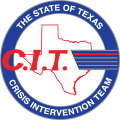Cross Creek Hospital Together With Ascension Seton helps children, adolescents, and adults who are struggling with conduct disorder through an unmatched quality of care and support. Located in Austin, TX, Cross Creek Hospital Together With Ascension Seton is the leading provider of conduct disorder treatment.
Learn More About Conduct Disorder Treatment
Learn more about conduct disorder treatment at Cross Creek Hospital Together With Ascension Seton in Austin, TX
When young people display violent or aggressive behaviors towards others or animals, lack control over impulses, damage property, and execute these actions without remorse or consideration for consequences that occur as a result, it is likely that they are struggling with conduct disorder. A mental health condition that can manifest in childhood, conduct disorder has the ability to cause a great deal of devastation to an individual’s life. The reason for this has to do with the fact that symptoms of this disorder are known to prevent a person from interpreting verbal and physical cues from others as non-hostile. Without the ability to understand others in these ways, a sufferer of this disorder often responds with anger or violence.
Likely outcomes for those who do not seek treatment for conduct disorder are multiple interactions with law enforcement and subsequent consequences enforced by the legal system. Discord among peers, family members, and others in the individual’s life is also common, as is hindered healthy functioning in academic and occupational settings. Additionally, substance abuse problems could arise and the development of additional mental health concerns could become apparent if care is not implemented shortly after symptoms become obvious to caregivers. Fortunately, there are excellent treatment options available for young people, as well as adults, who are experiencing problems as a result of this destructive disorder. Partaking in treatment can ultimately reduce the aforementioned risks and help sufferers learn how to identify and manage symptoms of conduct disorder.
Statistics
Conduct disorder statistics
While conduct disorder is more common among male youth, the prevalence rate of this condition among all young people is said to be around 4%. Experts in the field of mental health agreed that treatment of this condition is required early, as it is probable for symptoms of this condition to carry over into adulthood. Lastly, it is believed that individuals more at risk for this illness are young people who reside in more urban areas as opposed to rural areas.
Causes and Risk Factors
Causes and risk factors for conduct disorder
The manifestation of conduct disorder symptoms is often the result of certain risk factors in addition to other influences. Since research has yet to isolate a single cause for conduct disorder, it is believed that a combination of genetics and a youth’s environment can affect whether or not he or she will suffer from conduct disorder. If your child appears to be suffering from this disorder, the following could explain why and how your child has come to develop this condition:
Genetic: Family history of mental illness can impact a person’s vulnerability to mental health conditions, such as conduct disorder. Experts believe that if there is a family history of conduct disorder, there is a high likelihood that offspring will also battle the condition.
Environmental: The primary environment in which a child is raised can influence the onset and severity of conduct disorder symptoms. If a young person is subjected to trauma, such as abuse or neglect, at an early age, there is an increased risk for the development of conduct disorder. Furthermore, young people with parents who are not consistent in their parenting can also display symptoms synonymous with conduct disorder. Additionally, it is widely believed by mental health professionals that youth who are members of a large family or who have a family history in which criminal activity is prevalent, are also at an elevated risk to eventually meet diagnostic criteria for conduct disorder. Risk Factors:
- Early institutional living
- Residing in an urban area
- Exposure to trauma, abuse, and/or neglect
- Being male
- Low socioeconomic status
- Having a personal history of mental illness
- Family history of conduct disorder or other mental health condition
- Family history of criminal activity
Signs and Symptoms
Signs and symptoms of conduct disorder
Mental health experts believe that more severe symptoms of conduct disorder appear during childhood. Conversely, less severe symptoms are known to be present when a youth is in the adolescent phase of life. If you suspect that your child is grappling with this mental illness, it is important to note the presence of any of the following types of conduct disorder symptoms: Behavioral symptoms:
- Frequently running away from home
- Engaging in sexually assaultive behaviors
- Stealing
- Destruction of property
- Being physical violent
- Bullying
- Lying
- Being truant from school
- Missing work
- Uncontrolled acting out
- Frequent rule or law breaking
- Instigative behaviors
Physical symptoms:
- Burns as a result of fire starting
- Presence of sexually transmitted diseases or infections due to risky sexual behaviors
- Presence of injuries due to violent behaviors and acting out
Cognitive symptoms:
- Poor concentration
- Lack of good decision-making abilities
- Below average intellect
Psychosocial symptoms:
- Low threshold for tolerating people or situations
- Lack of guilt or remorse
- False sense of grandiosity
- Irritability
- Lack of empathy
- Low self-esteem
Effects
Effects of conduct disorder
Those who are struggling with conduct disorder will likely experience certain consequences if mental health services are not sought and implemented to alleviate symptoms of this illness. The following effects are those that can occur when conduct disorder symptoms remain present in a person’s life:
- Development of another mental illness
- Poor academic performance
- Hindered occupational functioning
- Exposure to sexually transmitted diseases or infections as a result of engaging in risky sexual behaviors
- Inability to maintain employment
- Increased interaction with law enforcement
- Early onset of sexual behaviors
- Unplanned pregnancy
- Partaking in dangerous behaviors or activities
- Substance use, abuse, and the potential for addiction
- Disciplinary action at school
Co-Occuring Disorders
Conduct disorder and co-occurring disorders
There are numerous disorders that can be diagnosed at the same time as conduct disorder. The listed conditions are examples of such illnesses that effective and appropriate treatment can address if an individual receives care for conduct disorder:
- Anxiety disorders
- Depressive disorder
- Bipolar disorder
- Oppositional defiant disorder
- Attention-deficit/hyperactivity disorder
- Antisocial personality disorder
- Substance use disorders
- Specific learning disorder
- Communication disorders

















